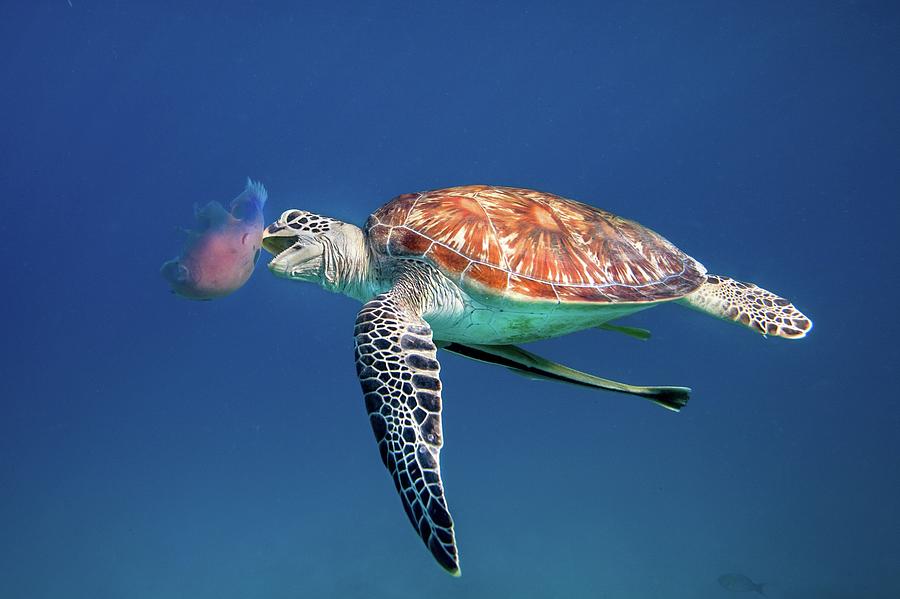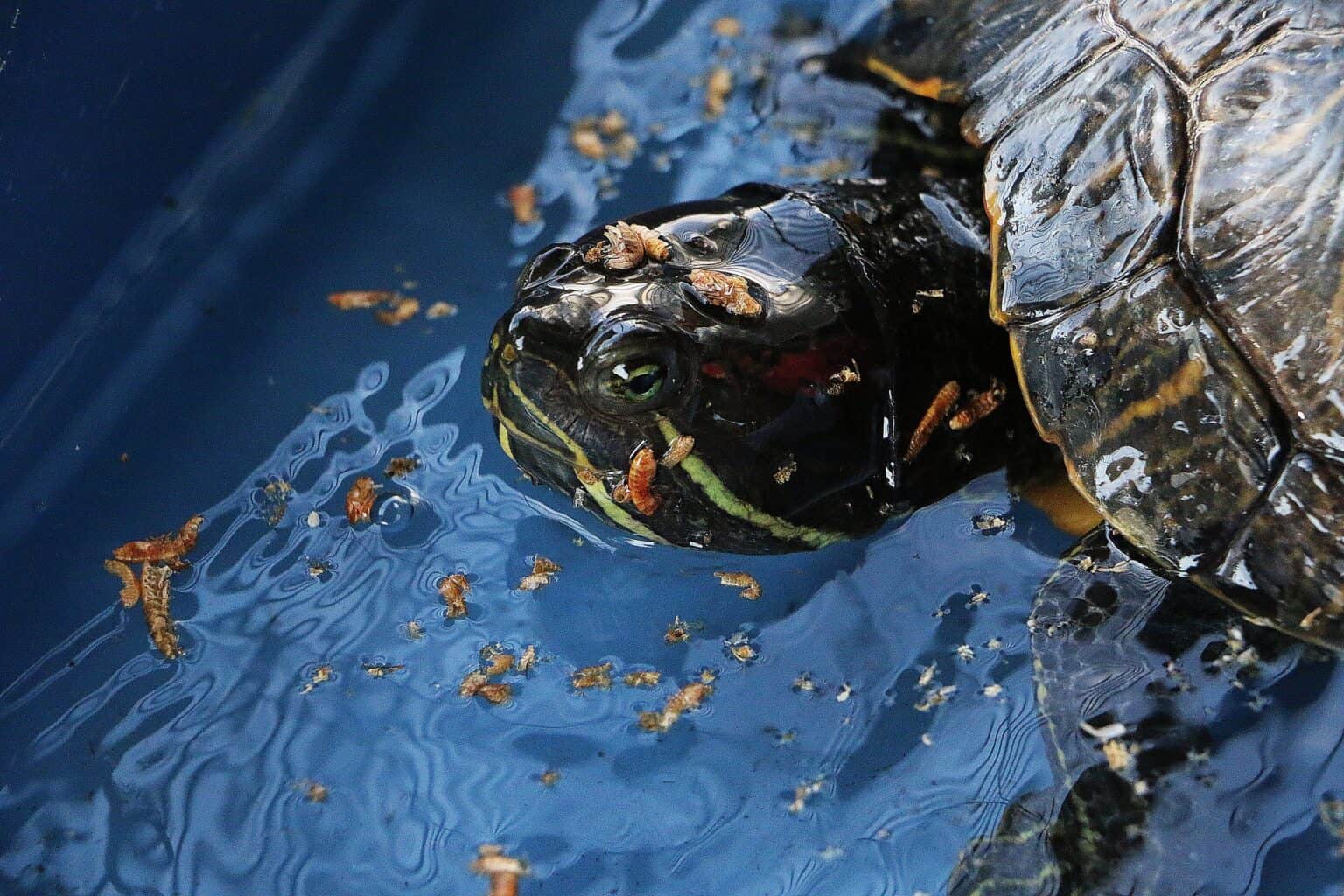Turtles are fascinating creatures that have unique dietary needs. As a turtle owner, it’s important to provide them with a balanced and nutritious diet to ensure their overall health and well-being. One common question that arises is whether turtles can eat fish food. In this article, we will explore the topic of turtles and fish food, discussing the potential benefits and risks associated with feeding fish food to turtles.

Can Turtles Eat Fish Food?
Turtles are omnivorous creatures, meaning they can consume both plant and animal matter. While their diet primarily consists of aquatic plants, insects, and small fish, some turtle owners may wonder if fish food can be included in their diet. Fish food is specifically formulated to meet the nutritional needs of fish, but can turtles safely consume it?
The answer to this question is not a straightforward yes or no. While turtles can eat fish food, it should not be the sole component of their diet. Fish food lacks certain essential nutrients that turtles require for optimal health. It is important to provide a varied diet that includes a mix of commercial turtle pellets, fresh vegetables, and occasional live prey.
The Benefits of Fish Food for Turtles
Fish food can offer some benefits when included as part of a turtle’s diet. It is often rich in protein, which is essential for the growth and development of turtles. Additionally, fish food may contain vitamins and minerals that can contribute to a turtle’s overall well-being. However, these benefits should be weighed against the potential risks associated with feeding fish food to turtles.
The Risks of Feeding Fish Food to Turtles
While fish food can provide some nutritional value, it is important to be aware of the potential risks it poses to turtles. Fish food is typically high in fat content, which can lead to obesity and other health issues in turtles if consumed in excess. Additionally, some fish foods may contain additives or preservatives that can be harmful to turtles. It is crucial to read the ingredients list and choose fish food that is free from any potentially harmful substances.
Creating a Balanced Diet for Turtles
To ensure the optimal health of your turtle, it is essential to provide a balanced and varied diet. Here are some guidelines to follow when creating a diet plan for your turtle:
-
Commercial Turtle Pellets: These should form the foundation of your turtle’s diet. Look for high-quality turtle pellets that are specifically formulated to meet their nutritional needs.
-
Fresh Vegetables: Offer a variety of leafy greens such as kale, spinach, and lettuce. These provide essential vitamins and minerals.
-
Live Prey: Turtles enjoy hunting and consuming live prey such as insects, worms, and small fish. These can be offered as occasional treats.
-
Calcium Supplements: Turtles require calcium for healthy shell development. Dusting their food with a calcium supplement can help meet this requirement.
-
Avoid Overfeeding: Turtles have a slow metabolism, so it’s important not to overfeed them. Offer food in appropriate portions and monitor their weight regularly.
By following these guidelines, you can ensure that your turtle receives a well-rounded and nutritious diet.
Conclusion
In conclusion, while turtles can eat fish food, it should not be the primary source of their nutrition. Fish food lacks certain essential nutrients and can be high in fat content. To provide a balanced diet for your turtle, it is important to include a variety of foods such as commercial turtle pellets, fresh vegetables, and occasional live prey. By offering a diverse diet, you can ensure the optimal health and well-being of your turtle.
FAQs
-
Can turtles eat only fish food?
No, turtles should not eat only fish food. Fish food lacks certain essential nutrients that turtles require for optimal health. It should be supplemented with other foods such as commercial turtle pellets, fresh vegetables, and occasional live prey. -
What are the risks of feeding fish food to turtles?
Feeding fish food to turtles can lead to obesity and other health issues due to its high fat content. Additionally, some fish foods may contain additives or preservatives that can be harmful to turtles. -
What should be the foundation of a turtle’s diet?
Commercial turtle pellets should form the foundation of a turtle’s diet. These pellets are specifically formulated to meet their nutritional needs. -
Can turtles eat vegetables?
Yes, turtles can eat vegetables. Leafy greens such as kale, spinach, and lettuce provide essential vitamins and minerals for turtles. -
Do turtles require calcium supplements?
Yes, turtles require calcium for healthy shell development. Dusting their food with a calcium supplement can help meet this requirement.

